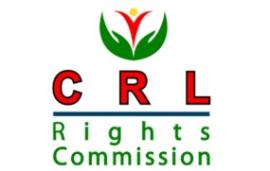
With South Africa due to commemorate Reconciliation Day tomorrow, President Cyril Ramaphosa’s appointment of members to the Commission for the Promotion of the Rights of Cultural, Religious, and Linguistic Communities (CRL Rights Commission) underscores the nation’s commitment to social cohesion, inclusivity, and reconciliation.
The country commemorates Reconciliation Month in December annually.
The CRL Rights Commission, established under the South African Constitution of 1996, is pivotal in protecting and promoting the rights of diverse communities.
READ | President appoints members of CRL Rights Commission
Its mandate aligns closely with the principles of Reconciliation Month, which seeks to foster unity among South Africans by addressing historical divisions and promoting cultural understanding.
The 2024 Reconciliation Month is commemorated under the theme, “Healing Historical Wounds and Forging New Futures”, befitting with government continuously forging towards democracy, reconciliation, social cohesion and inclusivity.
This year’s theme is greatly anchored by collectively promoting healing, nation-building and unity amongst South Africans.
Protecting rights
Section 31 of the Constitution enshrines the rights of individuals to belong to and enjoy their cultural, religious, and linguistic heritage without discrimination.
The CRL Rights Commission operationalises this by mediating conflicts, resolving disputes, and advocating for the protection of minority rights and proactive steps toward nation-building.
Newly appointed Chairperson, Thoko Mkhwanazi-Xaluva, a veteran of cultural advocacy, has previously emphasised the importance of dialogue in achieving harmony.
Mkhwanazi-Xaluva, who previously served as a commissioner, is also Head of Public Education and Advocacy unit within the Commission. She is involved in promoting and protecting the rights of cultural, religious and linguistic communities and nation building as an activist.
Prince George Mahlangu, the new Deputy Chairperson of the Commission, brings expertise in promoting safer initiation practices and resolving cultural disputes.
His work ensures that traditional practices evolve within a framework of mutual respect and understanding, a core aspect of reconciliation.
This as South Africa’s summer customary initiation season is already underway. The period, which is deeply cherished within many communities, marks the sacred journey of initiates, as they transition into manhood through a culturally significant rite of passage.
South Africa’s Customary Initiation Act, of 2021provides for the registration of initiation schools. Only schools registered with the Provincial Initiation Coordinating Committees (PICC) are legally permitted to operate. Conducting unregistered schools is a criminal offence punishable by a fine, imprisonment of up to 15 years, or both.
It also provides for the timing of initiation seasons whereby initiations must align with school holidays to prioritise the education and well-being of participants. Under it, written consent from parents or legal guardians is mandatory for minors, while adults require their own written consent. Violations can result in fines or imprisonment of up to 10 years among others.
Similarly, Commissioner James Mapanka’s advocacy for Khoi, Nama, and San languages shines a light on preserving endangered heritage.
His contributions reflect reconciliation through cultural preservation. He has served on various boards in Northern Cape Tourism and been honoured for his work with a special award by the Northern Cape MEC of Education.
Social cohesion
Social cohesion is inseparable from equality. The appointment of Advocate Aubrey Sedupane, an experienced human rights lawyer, highlights the importance of addressing systemic inequalities that hinder reconciliation efforts.
Sedupane has extensive experience in human rights law and holds a Master of Law degree in Human Rights Law. He has experience of working in various communities and has investigated and mediated critical cases that involved violation of rights of communities.
The appointments also represent South Africa’s commitment to diversity that ranges from Professor Muneer Abduroaf who specialises in Islamic Law, Family Law and Procedural Law to Dr Sylvia Pheto, who is an advocate for traditional leadership and women’s rights, the Commission embodies the nation’s multifaceted identity.
As South Africans reflect on the strides and challenges of reconciliation, the CRL Rights Commission’s renewed vigour underlines a shared aspiration: a nation where diversity is celebrated, and every community has a voice.
This Reconciliation Month, the Commission’s work serves as a reminder that social cohesion begins with protecting the rights of all communities.
President Ramaphosa will deliver his Reconciliation Day message to the nation at the Vredendal North Sports Ground in the Western Cape tomorrow.
Monday’s commemoration is scheduled to get underway at 11 am. -SAnews.gov.za


